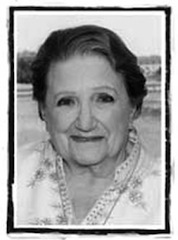
I met Margot De Wilde when I was working as the director of Holocaust education at the Jewish Community Relations Council (JCRC). Margot had contacted me to make me aware that she was available to go out to schools to tell her story and would I be interested in helping her organize this. After meeting with her I knew that we would indeed work together, but I did not know at the time that we would become good friends.
Margot's story is one of resistance, tragedy, and resilience. Margot was an active member of the Jewish resistance under Nazi occupation of the Netherlands; she worked in the underground by delivering false passports and identification cards to Jews to aid them in leaving Holland. Margot and her husband Lo were arrested when attempting to escape using these underground papers via train to Switzerland. Both were then sent to Auschwitz.
Margot was assigned to the infamous Block 10 where she endured and survived the Nazi medical experiments that were performed in Auschwitz under the supervision of Dr. Josef Mengele. In a rare occurrence, Margot was made aware that Lo was in the camp in the sick barrack, which she could see from hers. On one occasion she was able to catch a glimpse of him. She often told me how surreal that moment was as she wondered to herself if she was actually married to the man she saw through the cracks, (a shadow of his former self) or if they would remain married after all they had been through. Lo died in Block 9 at Auschwitz in 1944.
I thought about Margot's time in Auschwitz often this past summer when I spent a week there for a summer institute on Polish Memory. I had a hard time standing in Block 10 listening to our guide tell us about the experiments that took place there, as I had known full well what Margot had been through, what she had told me. I tried to imagine what it must have been like for her to look out those windows, or the time she saw Lo that one and only time. Of course I could not. But I was able to hear Margot saying to me that she never gave up, she never for one moment thought she would not survive.
Margot always said it was her rebellious nature that helped her survive, that she never did what she was told or was expected to do. "Always the opposite" she would remark. Her rebellious spirit is what I loved best about Margot. We would discuss current events and offer up our solutions to the world's problems. On one occasion when I was bringing her to an event at the Weisman Art Museum on the University of Minnesota campus we discovered that the elevator in the parking ramp was not working, so we had to find a way to get her close to the door, given her inability to walk long distances. I decided the only way was to actually drive up to the front of the Weisman. In order to do this we had to illegally drive up onto campus over the walk bridge, swinging past Coffman Union on the campus sidewalks. She was completely delighted by this and we both laughed about it every time I came to pick her up.
Margot loved to speak to school groups. She felt that the children she spoke to became the ones she could not have of her own. Margot never turned down a speaking engagement.
I remember Margot called me after she had received documents from the Red Cross Tracing Service; I went over to see her and she showed them to me. She was so grateful to have them since she told me it proved her existence at the time, that what she and Lo went through was documented. It was all there. No one could dispute it.
Margot always said she was not bitter about what happened to her. She felt that she was put here on earth to do something and maybe bearing witness to the Holocaust was what she was meant to do. When she eventually had to stop speaking because of her health she told me she had no regrets. She had done all she could do and maybe it was time to rest. Margot did not fear death, she thought of it as a part of life, so although I will miss her I know she will always be with us. Her story will live on as will her spirit. I hope now she is getting the rest she so richly deserves.
Ruth Margot DeWilde's passed away on May 1, at the age of 92. To learn more about her you can visit her CHGS web page by clicking here.
Jodi Elowitz is the Outreach Coordinator for CHGS and the Program Coordinator for the European Studies Consortium. Elowitz is currently working on Holocaust memory in Poland and artistic representation of the Holocaust in animated short films.